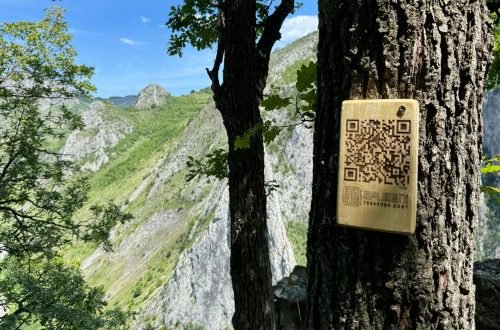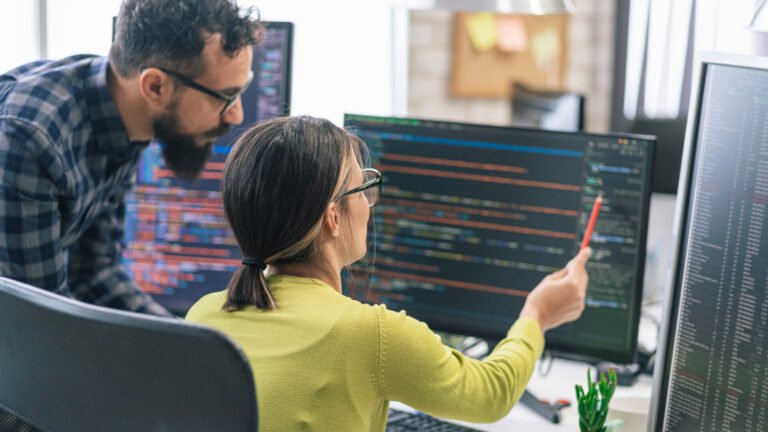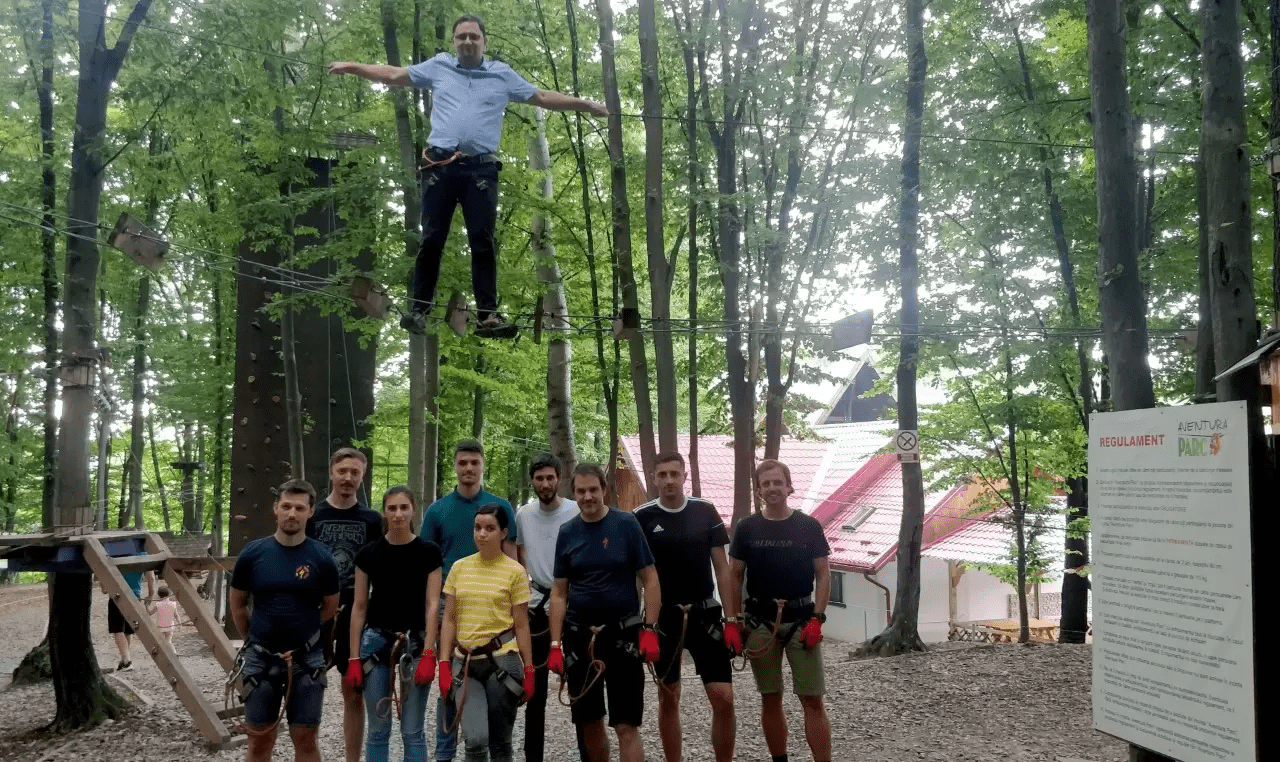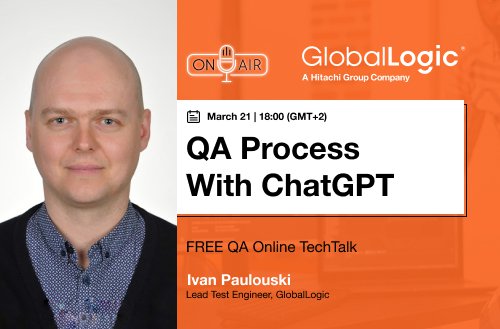- Services
Technology Capabilities
Technology Capabilities- Product Strategy & Experience DesignDefine software-driven value chains, create purposeful interactions, and develop new segments and offerings
- Digital Business TransformationAdvance your digital transformation journey.
- Intelligence EngineeringCreate high-value products faster with AI-powered and human-driven
- Software Product EngineeringCreate high-value products faster with AI-powered and human-driven engineering.
- Technology ModernizationTackle technology modernization with approaches that reduce risk and maximize impact.
- Embedded Engineering & IT/OT TransformationDevelop embedded software and hardware. Build IoT and IT/OT solutions.
- Industries
- GlobalLogic VelocityAI
- Insights
White PapersSeptember 17, 2024Diana SocaciuElevating Romanian Tourism with GlobalLogic: Apuseni App
The innovative banking apps, such as the one we'll explore in this case study, succeed ...
 Case StudiesGlobalLogic
Case StudiesGlobalLogicFrom Legacy to Leading-edge: A Global Software Leader’s ...
Discover how GlobalLogic’s AI-powered solutions helped a global software leader migrate...

- About
Alex, Senior iOS Developer, on Teamwork and Out-of-The Box Thinking in IoT Projects
Alex Dranca, one of our first colleagues in Iasi, had a valuable contribution to the stable growth of our Iasi office. His expertise and passion for software development as a craft led to high customer satisfaction and several successful projects.
We sat down with him (virtually) to discuss his early days with the company and his current project. Get a glimpse #BehindTheCode. Read about Alex’s growth path, his hobbies, and his passions.
Can you please tell us a bit about yourself? Your studies, hobbies, passions.
I studied Computer Science at Alexandru Ioan Cuza University in Iasi, and I’ve been working as an iOS Developer since 2013. An internship I did before at a smaller software services company sparked my interest in iOS development. I was fascinated by the straightforward logic of building animations for the iOS platform – so seamless and elegant.
Outside of work, my afternoons and weekends are about spending time with my family. As for my hobbies, I love playing MMO/RPG video games. Some of my favorites are World of Warcraft (Classic) and War Thunder.
When I want to get out and about, I hop on a short bike trip around Iasi and usually end up at Ciric lake, Rediu lake, or the Copou park.
As you’ll see in my photo, I enjoy the sense of freedom I get when climbing. It’s just one of the best feelings. So, that’s me, in a nutshell.
What convinced you to choose our company?
I joined the company as an iOS Developer in January 2016 as one of the first team members of the Iasi office. One thing that set this offer apart for me was the interview process, which I found very interesting. It was a hands-on learning experience for me at that point.
My career plans aligned nicely with the company’s vision and plans. I wanted to make a change and looked for a place that would offer me growth perspectives, both professionally and personally. A job at a newly established branch of a big company gave me exactly that and more.
Over the years, the opportunities I found here suited my personality and my expectations. As someone who always sees the glass half-full, often laughing in the face of adversity, I thrive when challenged. I remember one occasion when we had to find what was causing a memory issue with confidential, monetary information. Even though the code seemed to work as intended and we were doing proper memory management, the problem was still occurring. I used Xocde’s memory dump functionality, created files, and looked with a hex viewer.
The solution was less satisfying than the things I learned while tracking down the problem. Finding issues with one of Apple’s functions and using WKWebView instead of UIWebView fixed it. I enjoyed the thrill of the detective work of identifying the problem.
How did your software developer career evolve with our company?
My journey here started before the Iasi office opened. We worked from home for the first couple of months. Little did I know that the experience would prepare me for today’s remote work setup forced by the Covid-19 pandemic. It was nice to test it beforehand.
Since joining, I have worked on different projects: from a white-label eCommerce app to a dating app and a ride-sharing application. Currently, I am leading the iOS development of an SDK for a bike company.
Describe the projects you’re currently working on. What’s the tech stack like?
I am working for the Turbo Division of a bike company. We are developing an SDK that will communicate with the bike, see if there are issues with the bike, report them, enable tuning of the bike, and update the bike firmware from the SDK. This opens a whole new market for the company, from health apps and ride recording apps to new app domains we have not even thought about.
We develop the SDK in Swift, with a core of C++ and a thin layer between the two that’s written in Objective-C. For project releases we use Carthage and Cocoapods, with plans to add an SPM (Swift Package Manager) in the future. We rely on Jenkins for CI/CD, where we run the unit tests and configure and release different SDK and Demo app flavors. Given the need for hardware, we cannot run integration/end-to-end tests on that machine, so we run them on our devices. All the project information is held in Core data and encrypted with SQLCypher.
What’s your favorite thing about this software project?
What I like most about this project is that it forces us to think outside the box. We want to keep the dependencies to a minimum. We need to not impede the processes of the end application that will most likely contain a plethora of other SDKs. We must thoroughly think through our public interface by considering that any changes we make will directly affect the integrators. These are just some of the things we need to consider every step of the way.
What’s the most challenging thing about this software project?
I think the most challenging aspect of this project is its security. We work in the application environment; we have access to most things the app has access to, but the app has access to everything we have. Therefore, we need to give serious thought to saving sensitive information.
Furthermore, we work with our client’s teams from the US and Europe, which means we must switch time zones. This can also be challenging.
How about the team?
We are a relatively small team of 5 iOS, 5 Android, 2 C++ developers, and 2 QAs working from Iasi, Cluj, and Galati. There are no fundamental differences between the platforms, so we often work in different environments and try to encourage this mindset within the team.
If a platform has issues in a specific area, we get together, do a work offload, and take the tasks that we must do on that platform in the current sprint. Teamwork and collaboration are critical. We work together to find the right solutions.
We’re a young team with a massive drive to improve our craft – experiment, learn, improve, repeat.
We always make big architectural decisions in meetings, and this seems to work best for us. I remember how once we could not agree how to implement a feature and spent a few hours discussing the pros and cons of the topic. We ended up doing something completely different from our initial plan. Without this ambition and drive to find a solution, we would have never thought about that option.

Alex and his team during a fun team building.
Recently, Fortech became part of GlobalLogic. What’s next in your career journey, and what do you expect?
Helping others grow is a key focus for me right now. This year, we started an iOS internship program that will most likely come with a big chunk of effort and will teach me a few things that I didn’t know about myself. I’m looking forward to it!
On top of that, there are a lot of design decisions I have to make. Some will be good while others will prove wrong, but I will learn something new. So, instead of focusing on a specific career destination, I’m fully engaged in the journey. That’s the best part of it anyways.
With Fortech’s integration with GlobalLogic, there are many different career perspectives that you can find here, from projects to industries and technologies to work with. If you don’t like your initial project, you can move to a different one. If you want to dive into new technologies, you can do that. Things won’t happen overnight, and you need to work for it, but I can guarantee you that you’ll get a lot of support from your team members.


